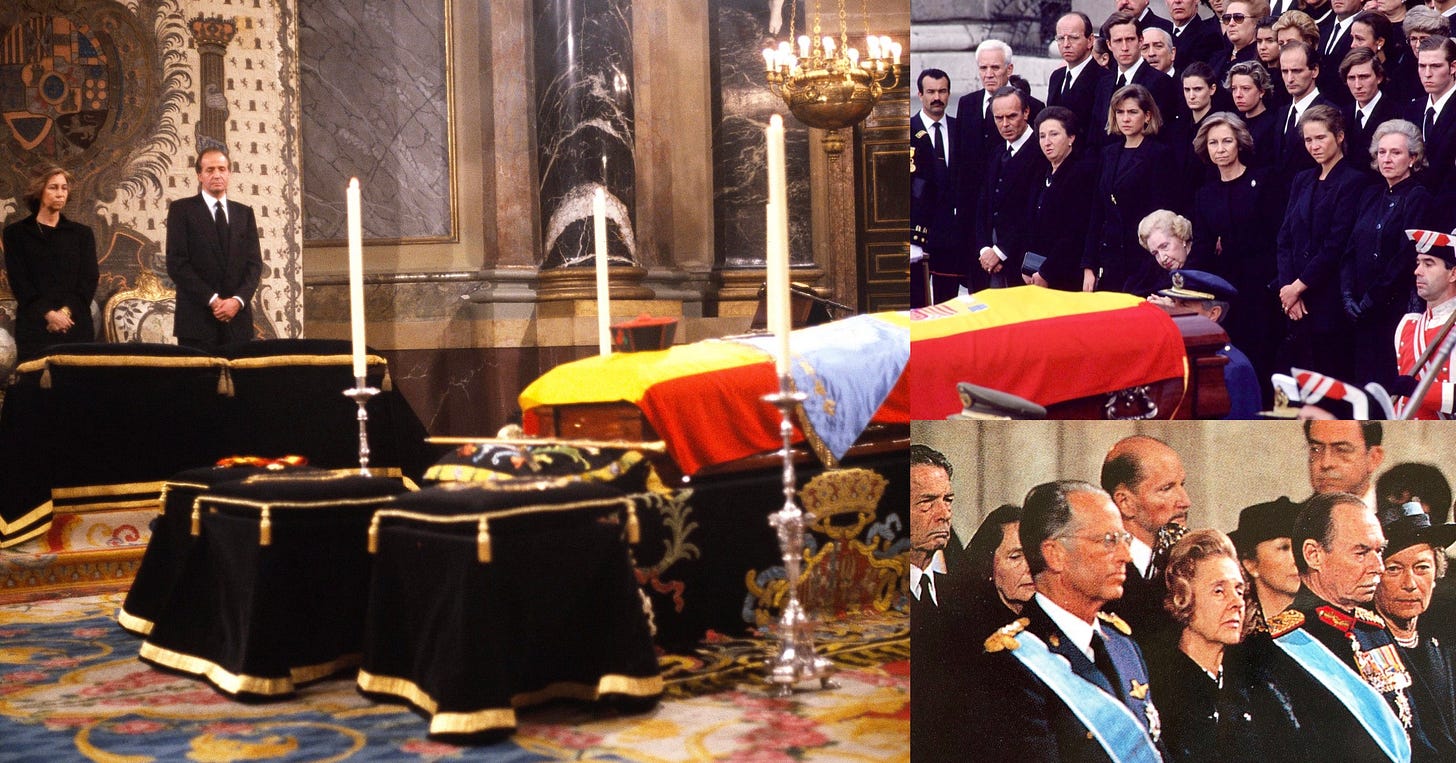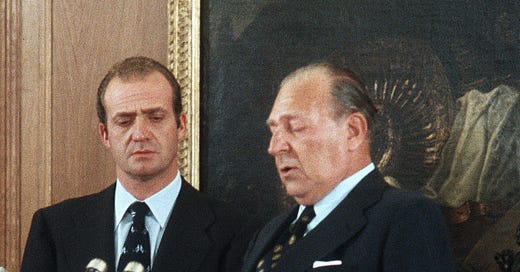Infante Juan, Count of Barcelona—now there’s a name that sounds like it should come with a crown, a scepter, and at least a small, loyal court of admirers. Instead, it comes with none of those things. If there’s one lesson to be learned from Juan’s life, it’s this: timing is everything, and unfortunately for him, his timing was perpetually off. Born a prince, married to a princess, father to a king—but somehow, Juan never quite made it to the main event. His life is a masterclass in being painfully close to glory, only to have the doors to the throne room slammed in his face.
Let’s start at the beginning. Juan was born in 1913, the third son of King Alfonso XIII of Spain. Now, third sons are a tricky position to be in—too royal to be irrelevant but not quite royal enough to matter unless something catastrophic happens to your older siblings. It’s essentially the royal equivalent of being the second-choice goalkeeper: always ready, rarely needed. But Spain, being Spain, specializes in catastrophes, and before long, Juan found himself in line for the throne after his older brothers abdicated their rights, either by choice or by circumstance.
In 1931, Juan’s father, Alfonso XIII, was unceremoniously kicked out of Spain as the monarchy fell and the Second Spanish Republic rose from the ashes of royal mismanagement. The whole family was sent into exile, which seems to be a recurring theme for the Bourbons. Exile for a royal family is less “grandeur in a foreign land” and more like “the world’s most awkward extended vacation.” They ended up scattered across Europe, with Alfonso wandering around trying to maintain some shred of dignity, and young Juan left to wonder what exactly the point of all this royal lineage was if you couldn’t even rule your own country.
Juan, however, remained the quintessential royal optimist. He believed in the monarchy, even when it seemed like the rest of Spain didn’t. He was a man who clung to tradition like a lifeline, convinced that one day he would wear the crown his father lost. The problem? The political landscape of Spain was less a straight line back to the throne and more like a maze with shifting walls, trapdoors, and, oh yes, a fascist dictator.
Enter Francisco Franco, the generalissimo who decided that Spain would not, in fact, be a monarchy anytime soon—at least not with Juan on the throne. Now, here’s the thing about dictators: they don’t tend to share power, and they certainly don’t make room for constitutional monarchs with grand ideals about democratic restoration. Franco ran Spain with an iron fist, and any notions Juan had about a Bourbon restoration were effectively put on ice.
That didn’t stop Juan from trying. He lived in exile, first in Italy and later in Portugal, where he styled himself as the rightful King of Spain, even though there wasn’t a kingdom for him to rule. The irony here is rich. He was a man with a royal title but no power, no country, and increasingly, no relevance. While other exiled royals might have thrown in the towel, Juan stubbornly held onto his claim, sending out manifestos and making speeches about the return of the monarchy. He had all the passion of a man who believes deeply in his cause—unfortunately, no one was listening.
Juan’s greatest political failure, however, wasn’t just missing out on the throne himself. It was his complicated relationship with his son, Juan Carlos, who would eventually become King of Spain. In a move worthy of a Shakespearean subplot, Franco, the very dictator who had thwarted Juan’s ambitions, decided that Spain would, in fact, have a monarchy after all—but with Juan Carlos as king. Talk about a gut punch. It’s one thing to be passed over for the throne, but quite another to be passed over for your own son.
This father-son dynamic was fraught with tension. Juan never really forgave Juan Carlos for accepting Franco’s plan, and who can blame him? The crown that should have been his was placed squarely on his son’s head, leaving him as a historical footnote while Juan Carlos basked in the spotlight. It’s almost tragic, except that Juan Carlos turned out to be pretty good at the whole king thing, and Spain eventually transitioned to democracy under his reign—something that, ironically, was exactly what Juan had wanted. It’s as if fate had said, “We’ll give you what you desire, but you won’t get any credit for it.”
Juan’s later years were marked by a sort of dignified resignation. He officially renounced his claim to the throne in 1977, long after it was clear that he would never rule. By then, he had become something of a relic—an emblem of a bygone era of royal ambition, eclipsed by a modern monarchy that had no real place for him. He lived out the rest of his days on the sidelines, while his son reign over a Spain he had only ever dreamed of ruling.
What’s remarkable about Juan, though, is that he never really lost his sense of duty. Despite the humiliation of being sidelined by Franco and overshadowed by his son, he remained a steadfast believer in the monarchy’s role in Spain. He might not have been able to wear the crown, but he never stopped thinking of himself as the rightful king. There’s something almost admirable in that kind of stubborn adherence to tradition, even when tradition has clearly moved on without you.

So, what’s the takeaway from Juan’s life? Perhaps it’s this: being royal isn’t about the crown you wear but the one you believe you should have worn. The Count of Barcelona never got his throne, but he carried himself as if he had one anyway. In a way, his life was a lesson in the absurdity of monarchy—the way it builds up the idea of power only to let it slip away. But it was also a testament to endurance. Juan may have been a king without a crown, but he never stopped acting like one, even when everyone else had moved on to the next episode of the Spanish royal soap opera.
In the end, Juan’s legacy is less about what he achieved and more about what he represented: the idea that monarchy is as much about myth as it is about reality. He was the almost-king, the would-be monarch who never quite made it to the throne, but whose sense of royal duty never faltered. Maybe that’s worth something after all. At the very least, it makes for a pretty interesting family reunion story.





Grande texto, amigo! Muito peculiar o seu gosto pelas monarquias.
Mais uma vez, adoro sua escrita! 💐